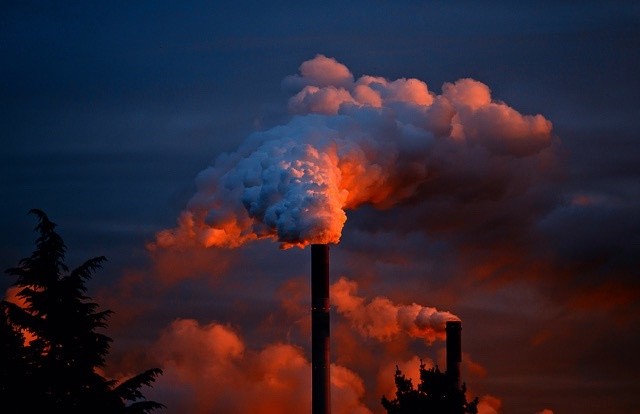
The United States formally withdraws from the Paris Agreement on climate change on Monday. The move left the United Nations to plot the path forward without the help of Trump's administration.
The action begins a yearlong preparation to the United States exit and a concerted effort to preserve the Paris Agreement. The deal, which was signed by nearly 200 nations, vowed to cut greenhouse emissions and to help developing countries cope with the most dangerous consequences of an already warming planet.
Secretary of State Mike Pompeo announced the decision on Twitter and issued a report stating the agreement would impose intolerable burdens on the American economy.
Today we begin the formal process of withdrawing from the Paris Agreement. The U.S. is proud of our record as a world leader in reducing all emissions, fostering resilience, growing our economy, and ensuring energy for our citizens. Ours is a realistic and pragmatic model. — Secretary Pompeo (@SecPompeo) November 4, 2019
A shift in diplomatic strategy worldwide has already begun. Laurence Tubiana, who served as France's climate change ambassador during the Paris negotiations, said that they are preparing for Plan B.
The United States President proved immovable as negotiators spent the early months of Trump's debating strategies to restore the American support for the accord.
Making the agreement work without the United States will need other significant polluters to act. China, now the largest emitter of planet-warming pollutants, has made substantial promises. However, Beijing's ability to deliver is still in question.
U.S. to continue voicing out on climate change resiliency
Pompeo said in his remarks on Twitter that the United States would still voice out in international conferences on global warming. He said the United States would continue to work with its global partners to enhance resilience to the effects of global warming and response to natural disasters.
"We will continue to work with our global partners to enhance resilience to the impacts of climate change and prepare for and respond to natural disasters," he said.
The United States will continue to innovate, research, and improve its economy while reducing emissions and extending a helping hand to the partners of the United States around the globe.
Many local governments and institutions in the United States made emissions commitments under a movement called We Are Still In. The campaign hopes to explain the world that Americans are behind the Paris Agreement even if the administration is not.
The sub-national "government pledges" are voluntary. There is no agreed approach on how to calculate the collective efforts to cut the emission levels by 2025.
Countries toughen emissions-reduction goals
More countries have indeed joined in toughening their emissions-reduction targets while no other countries followed Trump's lead in leaving the Paris Agreement. Analysts warned that Trump's antagonism toward climate action might dampen further actions due to the absence of pressure.
Elan Strait, a former climate negotiator in the Obama administration who worked on the Paris Agreement, said the efforts to strategize the possibility of a second Trump administration are occurring. The former negotiator, who is now working on World Wildlife Fund, explained the community was flat-footed by 2016, adding that the climate ambassadors want to be prepared this time.
© 2025 NatureWorldNews.com All rights reserved. Do not reproduce without permission.





